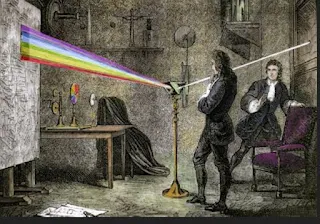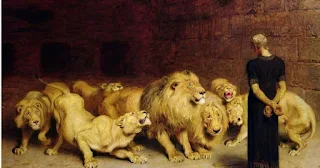Be devoted to one another in brotherly love. Honor one
another above yourselves. Romans 12:10 (NIV)
Have you ever watched rodeo clowns who distract those beefy Brahma bulls away from their fallen riders? These talented folks put themselves into the way of some serious harm to protect those on the ground. There are barrels available they can jump into when they need to get out of the way of an angry pair of horns. Getting head-butted by 1,600 pounds of hamburger on the hoof can be quite a jolt to the body. Some rodeo clowns do take it in stride and turn their serious work into some very funny antics that can leave the crowd laughing and applauding.
I have encountered many Christians with the personality of a Brahma
bull. They show a ready willingness to major in minor things and delight in butting
heads. These kinds of folks are convinced their views are the only correct ones
and hold little regard for those of others, even disregarding obvious facts. They have the tact of a charging bull, their
way being the only way and the other person’s the highway. They’re good at
justifying their viewpoints with, “Hey, I’m just telling them how it is. If
they get their nose out of joint that’s their issue.”
Jesus addresses this kind of dishonoring anger saying it does
not begin with others but within the heart. He even took it a step further saying
when they scorn and disdain another as less than (a fool), speaking
colloquially, along with anger in the heart of the home, murder sleeps in the spare
bedroom (Matthew 15:19). Paul tells us to be devoted to one another in the love
of Christ. I like the King James’ translation, to be kindly affectioned toward
others. Those two words, Kindness and affection—go beyond just feelings—they
are conscious choices.
How will we respond to Paul’s admonition in such matters?
Will we charge like a bull or light like a dove? When someone disagrees with a
minor point of view it can go beyond those few weekly hours at church. It can
leave us snorting and hoofing the ground from Monday to Saturday.
Anything we say ought to be words of grace seasoned with
salt (Colossians 4:6). Even if we are right and the other person in error,
hitting them with harshness only leaves them reeling like that rodeo clown in a
barrel, only it is never funny, and never to be applauded. Jesus admonished His
disciples to be as shrewd and perceptive as serpents, yet as innocent and harmless
as doves (Matthew 10:16).
To hit like a Brahma bull is not love, but to light like a
dove is the Lord’s preference. When it comes to sharing God’s truth, He is
always faithful to do so and never chases us into a barrel when He does. He
lights with the touch of His Holy Spirit, as light as a dove. It is a devotion
of love that honors others above self. When it comes down to thinking and
acting rashly like a Brahma bull, a bird on the wing is worth one in a barrel.
Maranatha,
Ken
Dedíquense
los unos a los otros en amor fraternal. Honraos los unos a los otros por encima
de vosotros mismos. Romanos 12:10 (NVI)
¿Amor del toro brahma?
¿Alguna vez has visto a los payasos de rodeo que distraen a esos fornidos toros Brahma lejos de sus jinetes caídos? Estas personas talentosas se pusieron en el camino de algunos daños graves para proteger a los que están en el terreno. Hay barriles disponibles en los que pueden saltar cuando necesitan apartarse del camino de un par de cuernos enojados. Recibir un cabezazo con 1,600 libras de hamburguesa en la pezuña puede ser una gran sacudida para el cuerpo. Algunos payasos de rodeo se lo toman con calma y convierten su trabajo serio en algunas travesuras muy divertidas que pueden dejar a la multitud riendo y aplaudiendo.
Me he
encontrado con muchos cristianos con la personalidad de un toro de Brahma.
Muestran una buena disposición para especializarse en cosas menores y se
deleitan en chocar cabezas. Este tipo de personas están convencidas de que sus
puntos de vista son los únicos correctos y tienen poca consideración por los de
los demás, incluso ignorando los hechos obvios. Tienen el tacto de un toro que
embiste, su camino es el único camino y el de la otra persona es el camino. Son
buenos para justificar sus puntos de vista con: "Oye, solo les estoy
diciendo cómo es. Si se les sale la nariz de la articulación, ese es su
problema".
Jesús aborda
este tipo de ira deshonrosa diciendo que no comienza con los demás, sino dentro
del corazón. Incluso fue un paso más allá diciendo que cuando desprecian y
desprecian a otro como menos que (un tonto), hablando coloquialmente,
junto con la ira en el corazón del hogar, el asesinato duerme en la habitación
de invitados (Mateo 15:19). Pablo nos dice que nos dediquemos los unos a los
otros en el amor de Cristo. Me gusta la traducción del Rey Jaime, para ser
amablemente afectuoso con los demás. Esas dos palabras, bondad y afecto,
van más allá de los sentimientos, son elecciones conscientes.
¿Cómo
responderemos a la amonestación de Pablo en tales asuntos? ¿Embestiremos como
un toro o encenderemos como una paloma? Cuando alguien no está de acuerdo con
un punto de vista menor, puede ir más allá de esas pocas horas semanales en la
iglesia. Puede dejarnos resoplando y pisando el suelo de lunes a sábado.
Cualquier
cosa que digamos debe ser palabras de gracia sazonadas con sal (Colosenses
4:6). Incluso si tenemos razón y la otra persona está equivocada,
golpearlos con dureza solo los deja tambaleándose como ese payaso de rodeo en
un barril, solo que nunca es gracioso y nunca debe ser aplaudido. Jesús
amonestó a sus discípulos a ser tan astutos y perspicaces como las serpientes,
pero tan inocentes e inofensivos como las palomas (Mateo 10:16).
Golpear como
un toro Brahma no es amor, pero encender como una paloma es la preferencia del
Señor. Cuando se trata de compartir la verdad de Dios, Él siempre es fiel en
hacerlo y nunca nos persigue en un barril cuando lo hace. Él ilumina con el
toque de Su Espíritu Santo, tan ligero como una paloma. Es una devoción de amor
que honra a los demás por encima de uno mismo. Cuando se trata de pensar y
actuar precipitadamente como un toro Brahma, un pájaro en vuelo vale más que
uno en un barril.
Maranatha,
Ken















